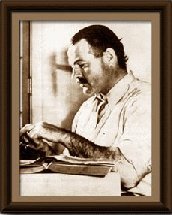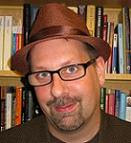 I first saw Woody Allen's Match Point back in March, and I wrote here about my impressions of it then. Last night I watched it for the second time, courtesy of Netflix, and happily it had the same mesmerizing effect on me as it did before, compelling me to put down some more thoughts about it. (Warning: If you haven't seen Match Point but intend to, you might want to skip the following long-winded blather.)
I first saw Woody Allen's Match Point back in March, and I wrote here about my impressions of it then. Last night I watched it for the second time, courtesy of Netflix, and happily it had the same mesmerizing effect on me as it did before, compelling me to put down some more thoughts about it. (Warning: If you haven't seen Match Point but intend to, you might want to skip the following long-winded blather.)
Now, first let me say I'm an unabashed fan of Woody Allen movies in general. Not every one of his movies, of course, as even his most ardent admirers know he has made some real clinkers. But when he's on, he's on, whether he's dishing up screwball comedies like Sleeper or Love and Death, bittersweet romances like Annie Hall, or gut-wrenching melodramas like Another Woman or Crimes and Misdemeanors. The key underlying all of Woody's best movies, of whatever genre, is that he assumes his audience is neither ignorant nor stupid. It sounds like such a little thing, but it really is not. (It might not be a coincidence, either, that Woody Allen is more or less alone among Hollywood directors in retaining complete creative control over his films.)
As a semi-neurotic, insecure, introspective adolescent convinced of his own misfittedness (look ma, a neologism), I found refuge in Woody Allen movies. The suburban kid from the Midwest raised as a Catholic may have known nothing of New York or of being Jewish, but Woody's bumbling, humorous explorations of the Big Questions struck an immediate chord with me. What is the nature of attraction? Why do we begin relationships with others? Why do we end them (or have them ended for us)? Is romantic love real, or is it only a polite veneer we attach to lust or selfishness? Can we really know other people? Can we even know ourselves? What is the ultimate meaning of our lives on earth? Does that meaning depend on God? And if God does not exist, is meaning even possible?
As a semi-neurotic, insecure, introspective adult convinced of his own misfittedness, I find these questions still haunt and fascinate me. Their echoes show up almost automatically in any fiction I write. They sometimes occupy the wee hours as I lie awake in bed, or they come out all a-jumble in one drunken bar conversation after another. Always I am groping for answers and sometimes I feel, as the fella once said, "The more I see, the less I know." At any rate, Woody Allen showed me that all this angsty questing was shared by many like minds, and that there could also be a beauty and humor to it all.
Is that enough background?
Now, Match Point. Some critics have noted the differences in this movie as compared to much of Woody's previous work. The most obvious is that it's set in London, not New York, and features an almost all-British cast. Two other things are that it's devoid of humorous one-liners as well as the inevitable goofy Woody or Woody surrogate character. (Although this is not the first of his movies where either or both of those things were absent: see, e.g., September, The Purple Rose of Cairo, or the aforementioned Another Woman.)
But thematically, it's classic Woody. His conviction that there is, and can be, no God is the starting point and, as in Crimes and Misdemeanors, the rest of the action is a working out of what the absence of a divine moral order means in terms of guilt, innocence, justice, and our most basic notions of right and wrong.
Some people, including me, have referred to Match Point as a noirish film. It has noir elements, to be sure. But because it inverts the basic premises of noir, it could never have been made in the Hollywood of the 1940s and '50s. For one thing, the Hays Office never would have allowed the criminal to not only go unpunished but to actually be rewarded. For another thing, in noir, the criminals are always undone -- murder will out! -- and this fact is intended to confirm the truth of the existence of a moral order. In other words, every true noir movie thematically depends on a belief in justice and the rule of natural (or supernatural) law. In Match Point the main character ultimately exists outside of any moral order and, consequently, outside of justice. Luck, not fate, is the movie's watchword.
Woody is, of course, far from the first to question our assumptions about a moral order, to explore matters of right and wrong in a Godless universe, or to inject a chilling note of dog-eat-dog into our ideas about human civilization. But he's one of the few American filmmakers to continue asking these perennially vital questions while creating entertaining drama in the process. For that, I am grateful. I like silly comedies as much as the next fellow (Beerfest is in my Netflix queue, after all), but sometimes I want to see a filmmaker use the medium for something more ambitious than fart jokes.
Having said all that, it is my belief that there is a moral order and, further, that the ultimate source of this order is God. But I've questioned these beliefs many, many times in my life, and I love and appreciate Woody Allen's thoughtful, probing explorations of the topic, if only to be reminded that the alternative to God is more terrifying than anything out of Stephen King's worst nightmare.
Monday, January 15, 2007
Warning: Contains Woody Allen Appreciation and Amateur Philosophy
Posted by Dave at 5:41 PM
Labels: armchair philosophy, movies, woody allen
Subscribe to:
Comment Feed (RSS)











|